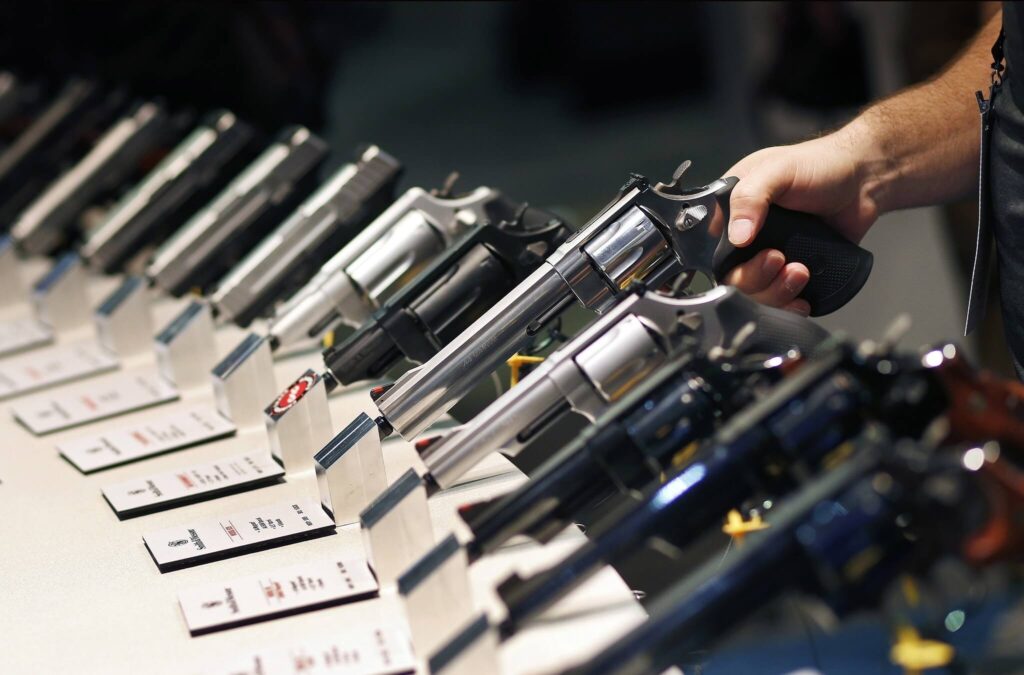by The Cowl Editor on October 26, 2017
Opinion

by Andrea Traietti ’21
Opinion Staff
It has been just under one month since the deadliest shooting by an individual in United States history. The Las Vegas shooting on Oct. 1 left 58 innocent people dead and over 500 wounded. Across the nation, the massacre sparked a wide array of emotions ranging from sadness to outrage, but in the weeks following the attack, the issue seems to have sizzled out, and has been put on the back burner.
Why are we okay with the silence surrounding this shooting? Why are we not sending the message that this kind of violence is not to be tolerated in our country? And perhaps the most pressing question is, when are we going to do something to try to stop these deadly attacks of domestic terrorism?
No major changes were made after the murder of six adults and 20 young children at Sandy Hook Elementary School in Newtown, Connecticut. There was no major response after 49 people were gunned down at Pulse Nightclub in Orlando, Florida. We cannot make the same mistakes in the wake of the Las Vegas shooting. Offering thoughts and prayers after an act of violence that could and should have been prevented will not suffice any longer. It is long overdue that we talk about gun control in the United States.
While Democrats tend to agree that stricter gun laws need to be enacted, Republicans tend to oppose the idea of stricter laws, citing the Second Amendment right to bear arms. However, recent polling has shown that while Democrats show more support for gun safety than Republicans in general, a combined majority of Americans from both sides of the political spectrum support the prevention of gun ownership for mentally ill persons and people on no-fly or watch lists.
The margin of support between Democrats and Republicans is larger for ideas such as background checks at gun sale shows or banning assault style weapons, but nonetheless a majority of Americans show support for these measures.
Especially following tragedies resulting from gun violence, like in Sandy Hook or Las Vegas, national support for common sense gun laws rises. So if most Americans want to see some kind of legislation concerning gun safety, what is the hold-up?
The problem is that Congress cannot agree on the kinds of legislation, or even if any legislation should be passed. Especially in a Republican-controlled Congress, using a broad term like “common sense gun safety laws” or “stricter gun legislation” turns people away from the idea. Terms like these can easily be misconstrued by members of Congress and citizens alike simply as attempts to place restrictions on the Second Amendment.
To combat this misunderstanding, more specific legislation needs to be introduced. It needs to be clear that this legislation is not an attempt to take away the Second Amendment or an individual’s right to own a gun. Instead, the legislation needs to contain very straightforward and specific ideas, so Congress can embrace it on a bipartisan level and ordinary citizens can understand. The support for gun safety is there, so legislation needs to reflect the things that Americans want to see.
The question remains then: what kind of legislation will work? Truthfully, there is not a way to know whether potential laws will work or if they will accomplish anything, especially in legislative territory as uncharted as gun control is. Perhaps the best way to approach the issue from a policy standpoint is to look at examples in other countries.
Take, for example, Australia. In 1996, after 35 people were killed by a gunman in Tasmania, Australia moved towards widespread reform. Australia now has a 28-day waiting period, background checks, and the requirement to present a “justifiable reason” to own a gun before anyone is able to obtain one.
Additionally, roughly one million semi-automatic weapons—the kind that shooter Stephen Paddock used in Las Vegas—were sold back to the government. The result of Australia’s movement toward gun regulation has been astounding: Australia has had no mass shootings since 1996, compared to the 11 they had in the decade before.
It is entirely possible that gun control laws of this type might not work in the United States. But we will never know until we try, observe how they work, and make the necessary changes and adaptations. In the meantime, it is not okay to do nothing. Out of a horrific tragedy, America has been given yet another chance to stand up against very un-American violence and terrorism. We can not let this chance pass by.
Comments are closed.
I’ll say it one more time:
Guns don’t kill, people kill.
Enforce existing Constitutional laws to remove those who kill.
Criminals lost fear of death when public executions were stopped and painless death was the new “punishment” for heinous crimes.